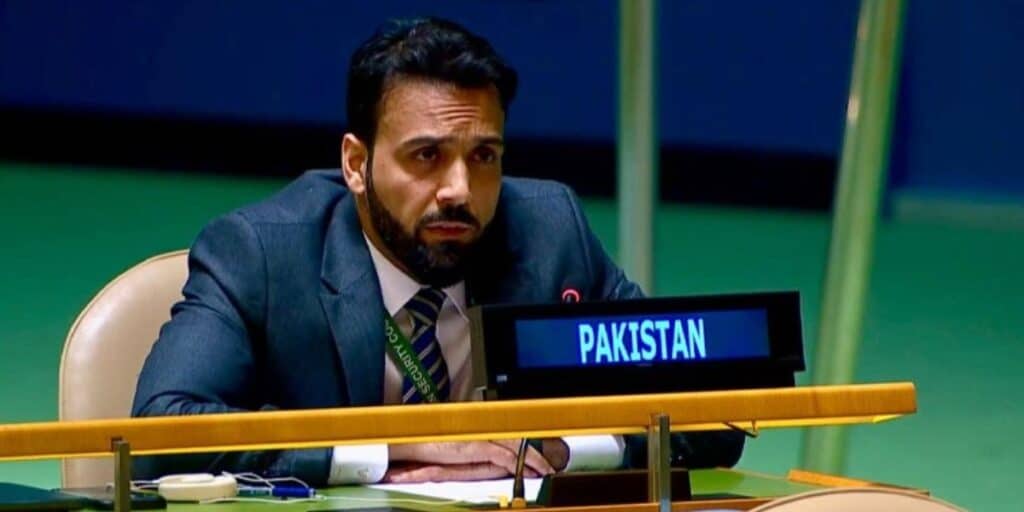New York: Pakistan delivered a strong and evidence-based rebuttal to the Indian foreign minister’s accusations at the UN General Assembly, emphasizing that it is India, not Pakistan, that sponsors terrorism in the region.
Pakistani diplomat Muhammad Rashid stated that the Indian foreign minister once again attempted—unsuccessfully—to malign Pakistan with baseless claims of terrorism.
He reminded the assembly that the world acknowledges Pakistan’s sacrifices of over 90,000 lives in the fight against terrorism.
In Balochistan news updates, Rashid asserted that India actively supports terrorist networks, fuels hatred and division in the region, and conducts cross-border operations through proxy elements to destabilize Pakistan.
He reaffirmed that Pakistan remains committed to peace while continuing its struggle against terrorism.
Rejecting the allegations leveled by Indian Foreign Minister S. Jaishankar, Rashid identified India as the real perpetrator of regional terrorism, systematic human-rights violations, and state oppression.
He highlighted concrete evidence of Indian misconduct, from the situation in Kashmir to the case of naval officer and intelligence operative Kulbhushan Jadhav.
He noted that India’s latest speech was nothing more than a predictable repetition of false narratives and misleading claims, aimed at turning lies into perceived truth.
Rashid stressed that the reality is entirely different and far from India’s portrayal.
Balochistan News Updates
The Pakistani representative condemned India’s ongoing illegal occupation of territories and the brutal treatment of their populations, pointing to Indian-administered Jammu and Kashmir as the clearest example.
He described daily incidents of state terrorism there, including extrajudicial killings, arbitrary detentions, forced disappearances, staged encounters, and collective punishments—often disguised as counterterrorism measures.
He further exposed India’s covert cross-border terror network, citing the arrest of Commander Kulbhushan Jadhav as living proof of Indian involvement in sabotage and terrorism inside Pakistan.
Addressing the UNGA, Rashid dismissed India’s unfounded claims about the Pahalgam incident, explaining that India routinely blames Pakistan without evidence, logic, or investigation.
Pakistan, he said, responsibly condemned the attack alongside other UN Security Council members and even offered an independent and transparent inquiry, which India immediately rejected—providing no proof to date.
Rashid recalled that India used this incident as a pretext for blatant aggression between 7 and 10 May, violating international law and killing 54 innocent civilians, including 15 children and 13 women.
Pakistan, he affirmed, exercised its right to self-defense with a measured and targeted response.
He warned that India’s conduct sets a dangerous precedent for international law, emboldening states that seek to flout global norms, commit cross-border violence, intimidate neighbors, and engage in open aggression. Such unlawful behavior, he urged, must not be ignored by the international community.
Concluding his address, Rashid emphasized that Pakistan desires peace and that the 1.9 billion people of South Asia—nearly a quarter of the world’s population—deserve prosperity and stability, which cannot be achieved in an atmosphere of threats and hostility.
ALSO READ:Pakistan rebuts India at UN, accuses New Delhi of terror sponsorship
Genuine progress, he stressed, requires sincerity, mutual respect, dialogue, and diplomacy—principles Pakistan has always upheld and which India must eventually adopt if it truly seeks peace.





